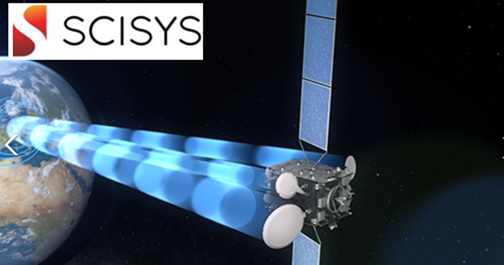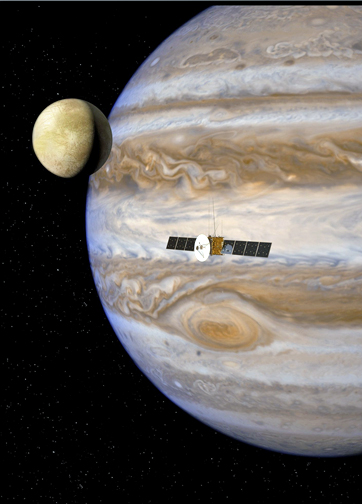

BAE Systems has commissioned SCISYS Deutschland GmbH for the modification of their Telemetry, Tracking and Command Processor (TTCP) for ESA’s (European Space Agency) JUICE mission to Jupiter.
JUICE stands for JUpiter ICy moons Explorer and will be the first large-class mission in ESA’s Cosmic Vision 2015-2025 program. The mission’s purpose is to investigate Jupiter and its systems in all their interrelations and complexity with emphasis on the three potentially ocean-bearing Galilean satellites, Ganymede, Europa and Callisto, and their potential habitability.

Artistic rendition of JUICE visiting the planet Jupiter.
Image is courtesy of ESA.
For a radio-science experiment, special Data Processing Unit (DPU) software is required to perform ranging measurements and observe the characteristics of the signals transmitted to Earth. This is where SCISYS and the TTCP — a satellite modem — play a key role. The DPU, which is designed by SCISYS, is an integral part of the Telemetry, Tracking and Command Processor (TTCP). Two TTCP systems are installed in each deep space ground station, while a small but robust transponder transmits and receives data onboard JUICE.
The TTCP development is led by BAE Systems (UK) as prime contractor in partnership with SCISYS, C-STS (NL), Atos (AT) and Zelinda (IRL) for ESA. TTCP was initially used for the BepiColombo mission to Mercury and in routine operations of other exploration missions like Gaia and ExoMars.
To fit the special requirements of the planned radio-science experiment on Jupiter the Data Processor’s software must be significantly enhanced. TTCP’s reception abilities will be extended, the handling of frequency plans will be upgraded, and an additional demodulator will be integrated. SCISYS is responsible for the design, testing, development and documentation of the modifications as well as the ongoing maintenance and further development of the DPU.
The launch of JUICE is planned for 2022 — the expected arrival at Jupiter will be in 2029. The spacecraft will spend at least three years observing Jupiter and three of that planet's largest moons. The radio-science experiment will explore the atmospheres of Jupiter and its satellites and perform measurements of the gravity fields.

